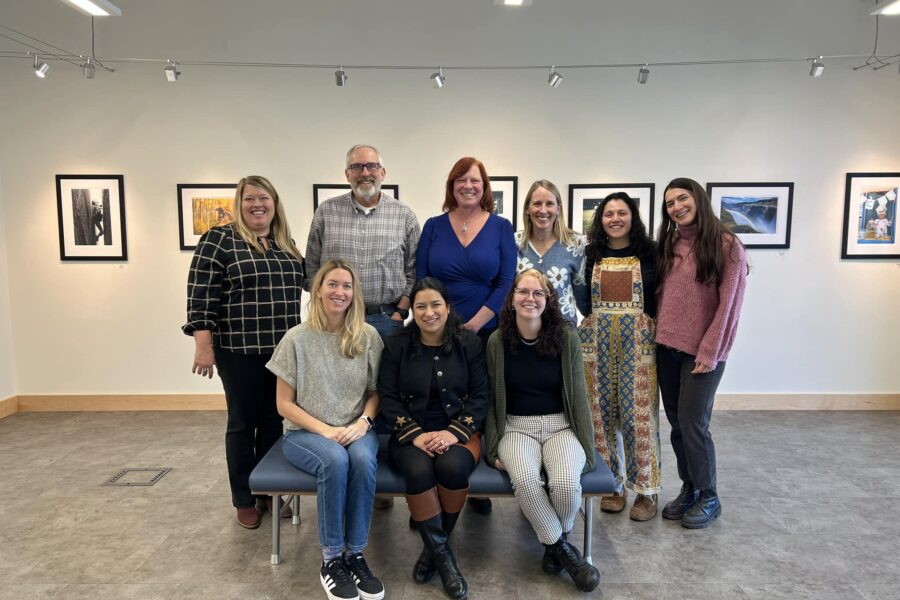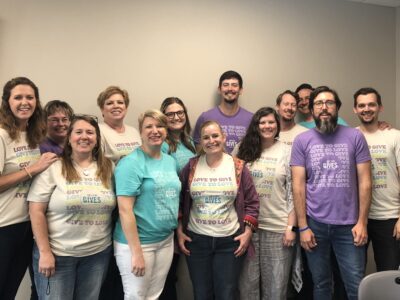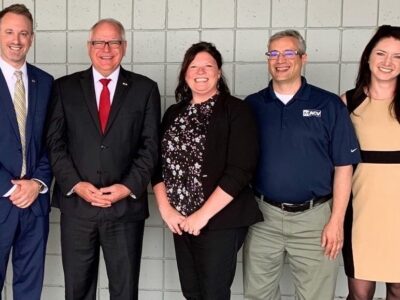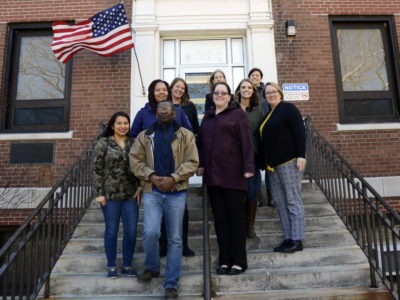Solving homelessness requires navigating overlapping challenges, particularly in a region as geographically and administratively diverse as Colorado’s Roaring Fork Valley.
In 2024, the community achieved Built for Zero’s Quality Data milestone for All Single Adults, marking a significant step forward in their work to solve homelessness across Eagle, Garfield, and Pitkin Counties. Quality data represents a reliable, real-time account of all single adults experiencing homelessness in Roaring Fork, including veterans and those experiencing chronic homelessness.
“We can now confidently pull data from any point in time and say, ‘This is the difference we’re making,’” explained Mike Barbee, Acting Data Manager at West Mountain Regional Health Alliance. “It helps us measure not only the progress we’ve made, but also the trends and needs across all three counties.”
Armed with this data, homeless service providers can measure progress, address gaps, and ensure resources are used effectively to support all single adults experiencing homelessness in Roaring Fork.
Building coalitions across complex terrain
As one of several regions in the Colorado Balance of State Continuum of Care, Roaring Fork is a largely rural area spanning over 5,500 square miles, characterized by canyons and mountainous terrain. The diverse geography — ranging from ranchland to some of the most expensive places to live in the country within a 100-mile corridor — makes even the most comprehensive outreach complicated.
“You can have someone who works in Aspen, which is Pitkin County, and they’re passing through a wedge of Eagle County to get there, but they live at the other end of Garfield County,” Barbee explained. “They’re resourcing themselves in all three counties, but not all three counties are set up to support such high mobility.”
Before joining Built for Zero, the three counties operated independently, each with separate outreach teams and databases. In their work to achieve quality data, the larger Roaring Fork team set out to develop a comprehensive approach for tracking and addressing homelessness across these distinct communities. This led to the creation of the Valley Alliance to End Homelessness, a formal coalition of more than 20 organizations designed to serve as the backbone of the community’s regional collaboration.
“It was a way for us to have an aligned effort to serve those that are unsheltered in our community in an equitable way, regardless of which county they are receiving services in,” noted Monica Brutout, Manager of Eagle County Homeless Services.
The Valley Alliance established a cohesive outreach approach across the tri-county area, standardizing best practices such as defining geographic boundaries for outreach maps. This ensures that outreach requests are swiftly directed to the appropriate team and helps prevent gaps in coverage.
“We feel confident that we have good quality data for a subpopulation of people experiencing homelessness that can be tough to track,” said Hans Lutgring, Garfield County’s Regional Outreach Director.
Now, both community partners and clients can better understand and navigate the available services. This coordination also reduces the burden on the individual and creates a no-wrong-door approach that allows the system to connect with their unsheltered neighbors quickly.
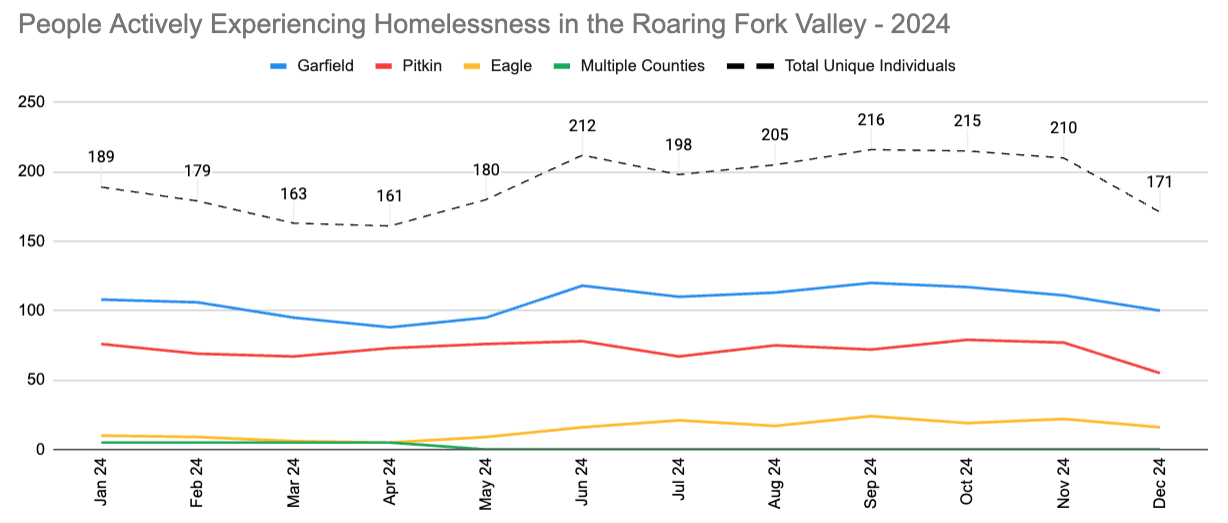
Showing the breadth and scope of the problem
To achieve Built for Zero’s quality data standard, communities must demonstrate they have a robust data infrastructure for entry, storage, analysis, and sharing. By formalizing the collective approach of the three counties, Roaring Fork’s Valley Alliance to End Homelessness also unified the counties’ systems into a centralized database for the region.
The database contains detailed profiles of single adults experiencing homelessness, including their names, backgrounds, health conditions, and housing needs — all collected with consent. The Valley Alliance also formalized data-sharing agreements across Eagle, Garfield, and Pitkin Counties, enabling transparent and effective resource allocation.
“If we’ve got strong data showing the breadth and scope of the problem, it can be a call to action for us to work as a region and leverage our resources,” Lutgring noted.
Members of the Valley Alliance now also participate in weekly case conferencing meetings — recurring, problem-solving sessions, bringing together representatives from each county to figure out ways to remove barriers to help house clients faster. These coordinated conversations allow for continuity of care as clients move throughout the region.
“We can now say with confidence how many people are coming into the system, how many went out, and what the currently active number is,” Barbee said. “Up until about eight months ago, I don’t think we could confidently put that data out to the community. Now, agencies are able to see their own accurate information reflected back about the trends in their counties.”
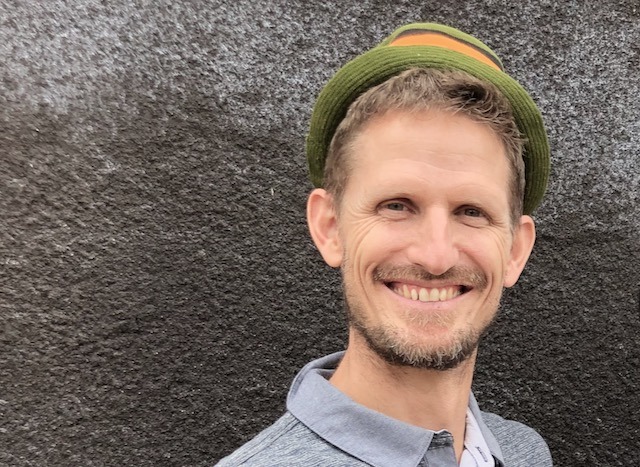
“We can now say with confidence how many people are coming into the system, how many went out, and what the currently active number is.”
— Mike Barbee, Acting Data Manager at West Mountain Regional Health Alliance
A dedication to fair access
A crucial factor in the Roaring Fork community’s success is their commitment to incorporating a diversity of perspectives throughout their team.
“Having this quality data allows us to look and reassess and address where we do need to heighten our resources to create a fairer system,” Brutout noted.
A large percentage of the community’s clients are Spanish speakers. The region has welcomed more than 60 households of Venezuelan newcomers since the beginning of 2024. Being bilingual and bicultural is a requirement on each county’s street outreach job description, and referral forms are always available in Spanish and English.
Additionally, staff with lived expertise of homelessness deepen the team’s understanding of the challenges unsheltered populations face.
“We’re thoughtful in our hiring practices, making sure that we have someone who can serve our community,” Lutgring said. “We believe it’s crucial for all the work we do.”
José Saéz is a former outreach worker at Mind Springs Health and a person with lived experience of homelessness in Colorado. As he explained, “My role consisted of going out and meeting people where they’re at and filling out all the paperwork so we can get the data we need.”
Drawing on his lived expertise, Saéz brought unique insights into the challenges faced by clients, often individuals he had personally known. This perspective strengthened his outreach efforts in the Roaring Fork community.
“You have to approach it from their point of view,” he said. “They’re not coming to you for therapy. They’re coming to you because they need help. So you have to explain: ‘Maybe I can’t provide that, but here’s some resources. Or maybe I’m not going to be the one to do that for you, but I’ll walk alongside you while you’re doing it.’”
Through his years in homeless response, Saéz has influenced how the system operates, redefining what it means to serve the community.
“I’m very passionate about trying to end homelessness,” Saéz said. “I believe that I’ve helped shape the organizations by bringing not just that experience, but that empathy…. Because if you’re passionate and empathetic to what the clients have been through and what they’re going through, you’re actually going to provide a service.”
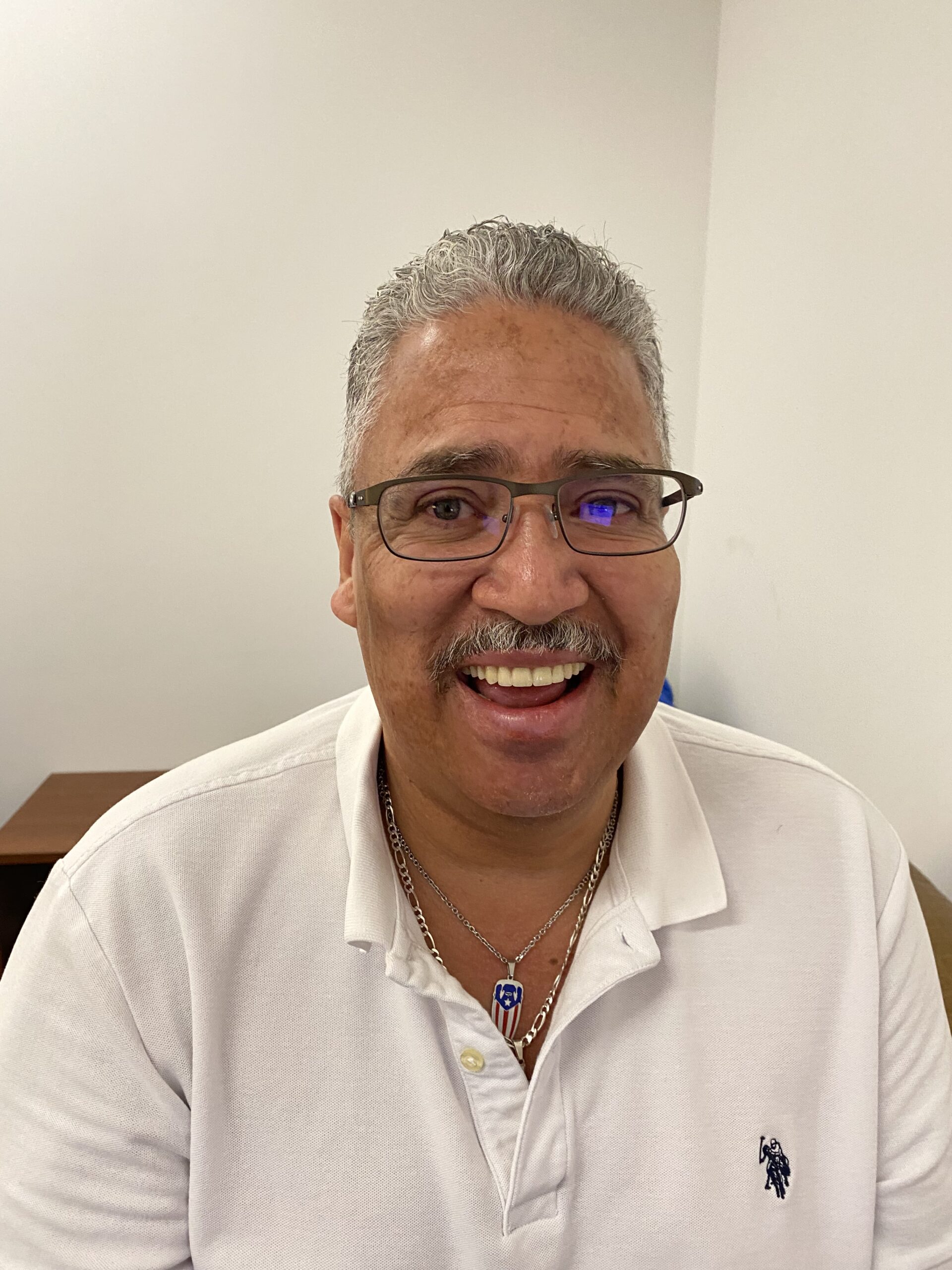
“If you’re passionate and empathetic to what the clients have been through and what they’re going through, you’re actually going to provide a service.”
— José Saéz, former outreach worker at Mind Springs Health
A roadmap for the journey to zero
Moving forward, Barbee envisions quality data supporting their organizational goals in new ways. He hopes it can continue to advance the region’s ongoing case conferencing practice while helping them better tell the story of their impact.
“We’ve put tons of effort into making that data quality, but I think it’s time to take advantage of that effort and get the data out,” he said.
Roaring Fork’s next goal is to make homelessness rare and brief by achieving the functional zero standard for the veteran subpopulation.
“With a clear roadmap for the Valley Alliance to End Homelessness, we can continue this journey,” Barbee said. “It’s a collaborative effort, with each county playing its part in achieving functional zero.”
Lutgring emphasized the team’s commitment to sharing progress, demonstrating how a united effort and data-driven solutions can help solve homelessness.
“Hopefully the data is just going to show others — this is something that we can get behind and fund, because this community is working smartly and they’re working together.”
The Roaring Fork team would like to thank all of the community agencies, organizations, and service providers who contribute data to their shared database in the collective work to end homelessness.
Catholic Charities Western Slope
Eagle County Housing
Garfield County Human Services
Mind Springs Health
Pitkin County Human Services
Recovery Resources
Salvation Army Glenwood Springs
West Mountain Regional Health Alliance
